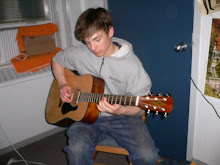9/9
Politics and the Internet
-We recognize that the problems and issues we face with computers and the internet are not
new. They had to figure out how to carry a pencil and not lose it.
-Recognize the inextricability of the human and the technological.
-No separation between the human and the technological.
-Artificiality is natural to humans. Humans are not 100% determined by the environment
-No such thing as a pre human being that is later determined by technology.
-Visual organization of space is determined by culture
-Humans are inextricable from technology not simply an effect.
-What matters for analysts and critiques of digital media (our class), is not the question of is technology good or bad, right or wrong, but: how does it work, what does it do, what does it entail. What is it making how is it making, how is it making us, is it making us?
Ong
-Primary frame of reference is to distinguish between oral cultures and literate cultures
-Radically different worlds
-Secondary orality
-Oral cultures characterized by a sort of impermanence, as so as my word is said, it’s gone.
-Experience the word as an event, it stops
-Writing tends to pin things down
-Just because something is penned down doesn’t mean it’s certain or clear
-Enables abstraction,
-Oral combat
McClullan
-Acoustic mode/space (orality) established through speaking or yelling
-Radio and TV create new type of acoustic space
-You can stop reading if you close your eyes
-Acoustic space more immersive, harder to avoid even if you don’t want it there
Levinson
-Jodi Dean on acoustic space: When thinking about acoustic space think about
-amplification-
-Storage
-Transmitted
-4 Types of acoustic spaces
-Unmediated hearing (radio, TV, cyberspace)
Criticisms of Levinson
-Pg. 6 “We create and remake cyberspace by using it...Physical bodies play no role”
-In some ways that’s true (facebook) on the other hand there are aspects of the internet now that are
simply delivery systems
-Pornography means bodies play a role
-Pg. 7 “The online villager can live anywhere in the world, engage in dialogue and exchange information across the world
-False, we don’t speak/read every language
-Few of us are comfortable trying to do things in other languages
-Stay within own language groups
-Denies existence of firewalls (youTube in Turkey)
-Not every place in the world has electricity
-“Myth of accessibility”
-Less corporate gate-keeping of news
-Not true
-Anyone can be an author
-Expert knowledge is available to anyone
-How do you know?
Subscribe to:
Post Comments (Atom)



2 comments:
Thanks, Matt. Looks good!
hello
Post a Comment